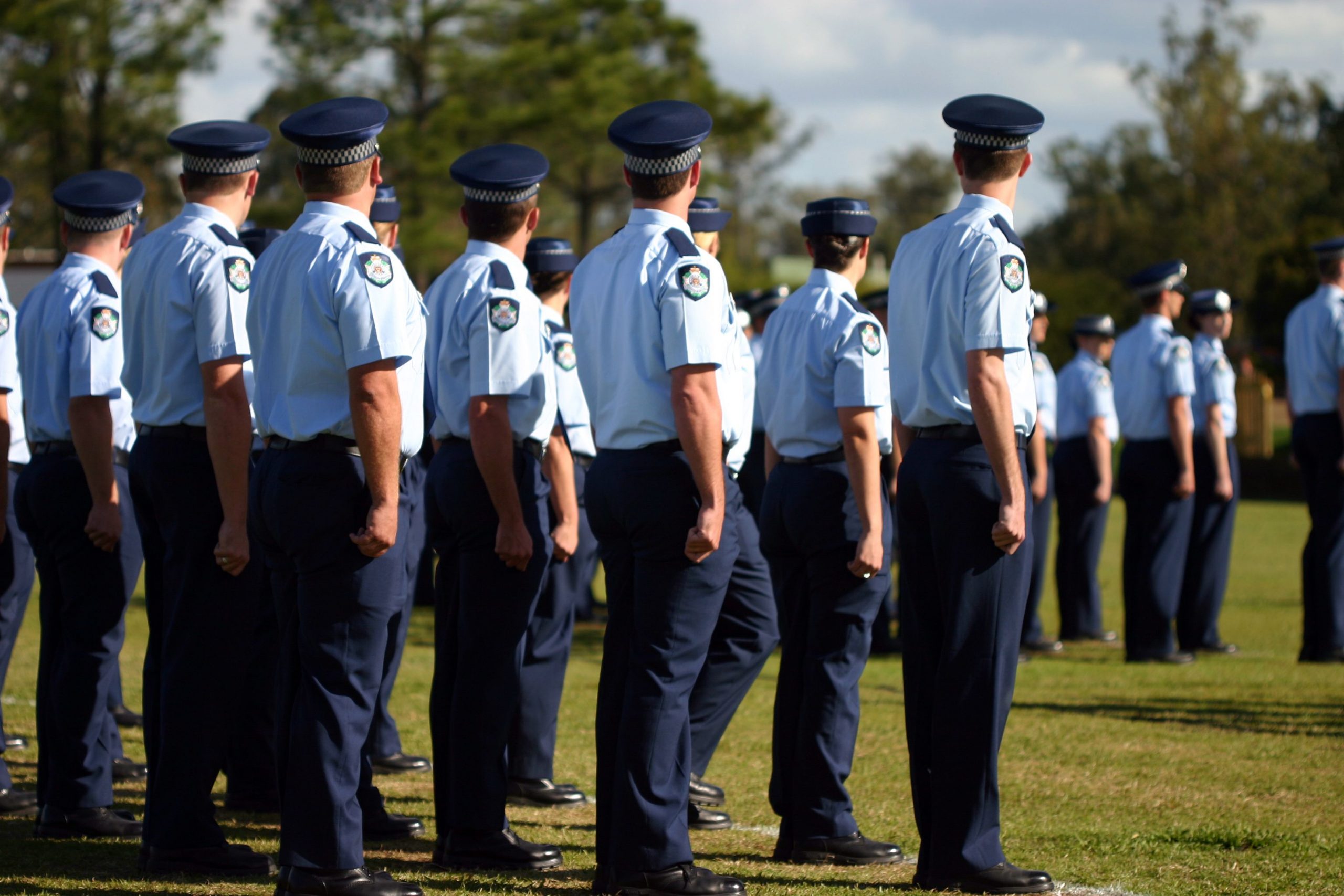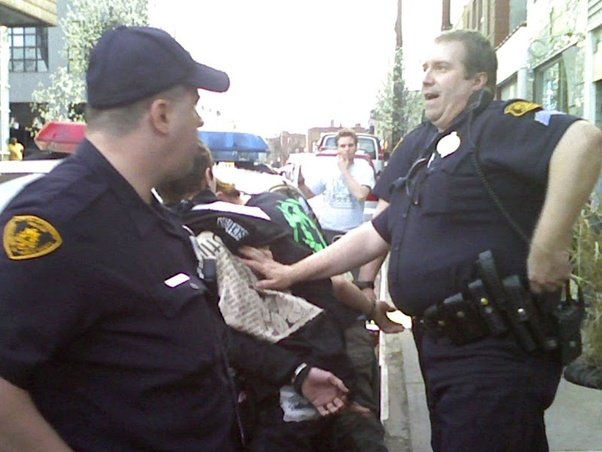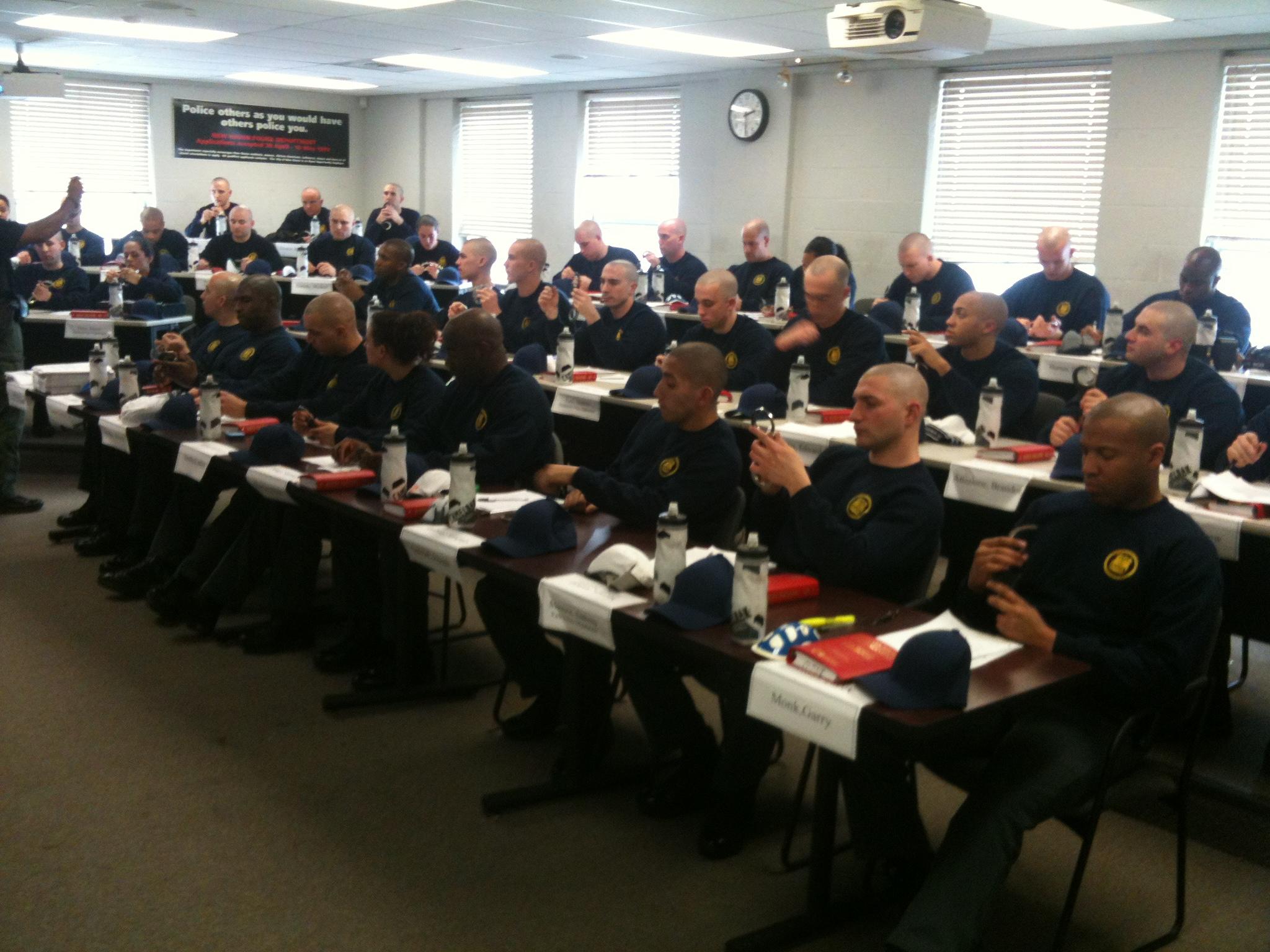Acquire A Degree Or Academy Training
The requirements for this step will vary substantially depending on the state in which you plan on becoming a police officer. Some states do not require their officers to be college-educated, even if they may prefer it. Other states, like Minnesota, an Associates degree or equivalent training is one of the requirements to become a police officer.
Generally speaking, the training process for aspiring police officers follows two routes:
- Completing training by earning a two- or four-year degree in Criminal Justice or similar field from a Peace Officer Standings and Training -certified college or university, or
- Completing training through a government-approved police academy or training program.
Since police officer requirements differ, youll want to be sure to check with the agency that sets the standards for law enforcement training and licensure in your area. Some also have arrangements for military reciprocity, allowing candidates who served in the military to follow a different process in acknowledgement of the training they already have.
Whichever path you take, your training will include classroom instruction in state and local laws, covering topics like constitutional law, civil rights and police ethics. Recruits also receive training and supervised experience in areas such as patrol, traffic control, firearm use, self-defense, first aid and emergency response.
Ensure A Career As A Police Officer Is Right For You
As with any job, its important to take a hard look at what the position requires to determine whether the career path is really right for you. Not only is it important to consider the career in general, its also important to look at the education required, the on-the-job intensity that police officers might experience on a day-to-day basis, and other factors. Its also a good idea to consider advancement if you have an eye toward higher-level administrative or federal work, is becoming a police officer the best stepping stone? Here are some questions to ask before diving into training to become a police officer.
- Do I have the physical strength to restrain dangerous individuals or save innocent civilians?
- Can I effectively read peoples emotions and feelings, in particular when it comes to assessing an individuals credibility and danger to others?
- Can I make difficult decisions that often have no ideal outcomes?
- Am I comfortable taking on a leadership role, whether it be as a community resource or point of assurance during a crisis?
- Am I good at communicating with others, especially in high stress situations?
If you answered yes to these questions, you may be an excellent fit for a police officer career.
How To Become A Police Officer In Vermont
Working in law enforcement in Vermont can provide you with a rewarding career in a beautiful setting. Despite the states relatively small size, there are still plenty of opportunities to work as a cop or sheriffs here, as the population continues to grow and the state enjoys a low unemployment rate.1 Those hoping to find work as law enforcement officers in Vermont must meet the requirements set by the state as well as any additional requirements held by the hiring department. Continue reading to learn more about these requirements and what it takes to launch a police career in Vermont.
Also Check: What Requirements Do You Need To Become A Police Officer
Read Also: How To Become A Police Officer With No Experience
How Much Does Portland Pd Make
PortlandearnaveragePortlandearn aTo be considered for Multnomah County Deputy Sheriff jobs, you must meet certain requirements:
What are the qualifications for Police Officer?
Dont Miss: Can I Sue A Police Department
How Old Can You Be To Go Into Law Enforcement

Becoming a law enforcement officer is often the dream career of many regardless of their age. A lot of people, however, do ask themselves if they are too young or too old to go into law enforcement. There are minimum age limits set by each state, and some states set a maximum age as well for going into law enforcement. There is a listing of the police officer requirements for each state. When it comes to actually getting hired by an agency, as does not matter as much as how well the applicant is prepared for the job, and the competitive selection process.
Mastering the Police Interview quite often turns out to be the real determining factor for the successful candidate. If you are able to handle your oral interview well, you can present your age as an advantage, regardless of the actual number. Younger candidates have the privilege of being open to learn and adopt the habits of the agency they apply for, while older applicants bring a lot of life experience with themselves.
Yet, if you are still wondering what is the best age to apply for a law enforcement officer, below you will find more details about the minimum and maximum age requirements, as well as some useful tips on how to prepare for the job while still in your teen years.
Also Check: Where Do I Pick Up A Police Report
You May Like: How To Become A Police Officer In Los Angeles California
Do You Get Paid To Go To The Police Academy
Training is demanding. It requires long hours in the classroom and field, plus outside studying. Thankfully, officers typically receive their full starting salary during training. Its also common to receive a raise after successfully completing academy training. If you can make it through, youll deserve it.
Whats Covered In Academy Training
Local agencies, such as the Commission on Peace Officers Standards and Training, dictate the level of training required to become a police officer in their region. Academy training includes a blend of classroom and practical training. Youll take classes in firearms, first aid, criminal law, emergency vehicle operations, defensive tactics, and investigations. At the same time, youll learn about department processes for procedures like arrests and reports.
Most programs will include specialized training, based on the location. For example, departments in large metro areas may train on counterterrorism, riot control, and bomb squad. In addition, other programs may focus on community policing, problem-solving, and patrolling.
You May Like: Do I Need A Police Report To File A Claim
What Are The Different Police Academies
There are two distinct types of police academies. In either academy, you can decide to enroll without first being hired, though you will have to pay tuition to attend. If you enroll without first being hired, you can apply to be a police officer after receiving your certification, but they may ask you to complete an additional training course.
The two types of police academies are:
-
Police-run academy: In a police-run academy, recruits are typically new hires to a police force going through basic training before starting the job. If this is the case, the recruits earn their starting salary while attending the police academy. Since the recruits are law enforcement employees, not students, these academies are often more intensely disciplined.
Do You Get To Go Home During Police Academy
Depending on where you train to be a police officer, you may or may not get to go home during police academy. For RCMP, your training troop of 32 cadets live at an on-site facility called The Depot for the full duration of training.
While a few municipal training academies have recruits live on the grounds during training, most academies have recruits go home at night. If you are training at an academy where you live on the grounds, going home during the training can be very difficult to balance as it is quite exhausting, both mentally and physically.
Also Check: Where To Obtain Police Report
Apply To Become A Police Officer
Working as a police officer is a popular job, so it makes sense that each job opening has more than a few applicants. In fact, in some areas of the country, becoming a police officer can be a highly competitive process, with hundreds of qualified applicants vying for only a handful of positions. Given this, its very important to learn how to stand out from the pack of hopefuls and get the attention of those who call the shots when hiring time rolls around. The following resources can help you with everything from cleaning up your resume to understanding how to interview for the job you really want.
Step 7
Completing The Police Academy
When you have successfully completed the hiring process, you are a few steps closer to becoming a police officer but you still have two more phases to go through. The first one is the Police Academy. There you will undergo a lot of physical and theoretical training and learn how to use guns and apprehend criminals. You will receive knowledge about different laws and law enforcement procedures as well as acquire practical skills in driving, first aid, etc.
Not all candidates who enter the Academy finish their studies. You may be rejected due to bad performance, while some candidates give up themselves as they find it too difficult to complete.
The duration of the training in the Police Academy varies for the different agencies. It usually takes about 13 to 19 weeks on average but can last up to six months.
Note that it is possible to complete the Police Academy prior to applying for a police officer. Getting POST certified is one of the secrets to getting quickly hired as a police officer so, you can investigate this option as well.
You May Like: Can You Be A Police Officer Without A Degree
Pass The Licensing Exam
The next step to becoming a police officer is to earn a passing score on your states police licensing board exam. Your education and training will prepare you to take the Peace Officer Standards and Training exam.
Each state has its own licensing board, so the tests will also vary. But generally speaking, most POST exams cover topics like: practical application and techniques, civil and criminal law, community policing, victims rights and management and communication. By passing this capstone exam, you are licensed to become a police officer and enforce the law in your jurisdiction. You are now free to seek employment with a police department.
What Do I Have To Do To Acquire The Jailer Exam

To receive the Jailer exam submit a request, on department letterhead to the Training Supervisor at the Arkansas Law Enforcement Training Academy, P.O. Box 3106, E. Camden, AR 71711. Include the Certification number of the course, the date of the class and the date of the test. The exam will be mailed to you.
You May Like: Can I Call The Police For Verbal Abuse
What Do Police Officers Do
The essential role of a police officer is to uphold and enforce the law to protect citizens and their property. One of their primary tasks is to prevent crime so as to preserve the health and safety of a community and its inhabitants. Furthermore, there are a number of different specialties within the police force and they have differing roles that vary according to their area of specialization. Generally however, police officers are involved in carrying out a large number of tasks which include:
- Enforcement of traffic and safety laws
- Investigation of accidents and crimes
- Arresting those involved in or suspected of criminal behavior
- Taking statements from witnesses and gathering crime related evidence
- Conducting traffic
- First response in case of emergencies, traffic accidents, etc.
- Preparing cases for court
How Fast Should A 13
The International Association of Athletics Federations recommends that 13-year-olds run no more than 10K at a time approximately 6.2 miles. At a fast pace of six minutes per mile, this works out to just over 37 minutes, but at a slower pace of 11 minutes per mile, it works out to about an hour and eight minutes.
You May Like: Can Anyone Obtain A Police Report
Get Accepted & Paying Your Way
Admission requirements can vary widely depending on the type of program and institution offering it. Another consideration is how to pay for this education and training. During your application process, keep the following pointers in the back of your mind to help you get into the best program to meet your needs and goals as a future police officer.
Entrance requirements
Entry into various degree programs in law enforcement will all require some general points, such as completing an application, paying an application fee and presenting proof of high school graduation.
The associate degree program might require:
- A personal statement
- Transcripts from any other college courses taken
The bachelors degree might require additional information:
- An essay
- Transcripts from associate degree work
- Completion of certain prerequisites
- A resume of related experience
Application process & fees
Paying for Your Program
How much a training or educational program costs depends greatly upon the degree level you want to obtain. For instance, obtaining an associate degree will cost much less than a bachelors degree will. To learn more about financial aid options and how those will affect your financial bottom line, visit our online financial aid handbook:
Step 4
Successfully Pass A Background Check
You can expect any law enforcement agency youre applying for to conduct a number of checks into your background, including criminal history and even credit history. While this isnt literally the first step to becoming a police officer, it is the first one youll need to consider before you get too invested in the process. If you have concerns about how your background might impact your candidacy, you may want to consult a police academy admissions representative about it.
Your credit history may be analyzed because it gives potential employers an idea of your level of responsibility and potential problems like gambling-related debts. Police departments look into applicants history of criminal activity, employment, residency and academic records as well.
Basically, the police department is going to get deep into your business, says Adam Plantinga, and 17-year veteran sergeant with the San Francisco Police Department. Dont leave anything out on your background packet. If you omit something, even inadvertently, and it comes to light, you will likely be eliminated as a candidate. Departments are looking for responsible people who play by the rules.
Things like felonies and gross misdemeanors could disqualify you from becoming a police officer, but less serious offenses could also be problematicit really depends on the department and its policies.
You May Like: How Much Does It Cost To Be A Police Officer
Faq: What Do You Do In The Police Academy
Law enforcement careers cover many disciplines, including that of a police officer. Understanding the training and education expected of police recruits can help determine whether this career path is the correct one for you. In this article, we discuss what police academies are, what happens there and answer other frequently asked questions about them to educate you on becoming a police officer.
Related:19 Jobs With the Police
My Radar Operator Certification Has Expired And I Have Been Unable To Find A Course Being Offered Do I Have To Attend The Entire Course Again
Radar certificates issued after March 3, 2016 do not have an expiration date. The radar refresher is no longer required. If your radar certificate has an expiration date, then simply submit the F-7 form before the expiration date and have it renewed. As long as you are not separated from a law enforcement status that is eligible for radar certification for more than three years, then the radar certificate will not expire. Please be aware that CLEST is no longer issuing a wallet card along with the certificate. In addition, the full radar class is now eight hours.
Also Check: How To File A Fraud Report With The Police
Associate Degree In Law Enforcement
An associate degree in law enforcement prepares graduates for police careers by providing the information necessary to pass police academy entrance exams. The associate degree usually takes two years to complete, is a well-rounded degree with general education courses mixed in, and serves as a stepping stone to the bachelors degree. Because each associate degree program will be tailored to the requirements of the local and regional law enforcement departments, curriculums will vary. However, some of the classes incoming students can expect include:
Crime Types
How To Get In: Police Academy Requirements

Whether your dream is to become a police officer, detective, or investigator, you’ll need to complete a rigorous police academy training program before you can begin work in the field.
Getting admitted into the police academy alone is an achievement. You must first pass the educational requirements and go through a series of screenings and tests. Only then will you be admitted to the academy. While individual departments tend to set their own specific requirements for entrance into the academy, there are some general requirements that are essentially universal.
Also Check: What Do Police Drones Look Like
Top 15 Criminal Justice Jobs That Dont Require Police Academy
The first association people make when they hear of Criminal Justice is with the more prominent career choices, such as Law enforcement officers, however there are many ways to make a difference in society without police academy training.
Attending the Police Training Academy is not necessary for a wide variety of other careers in the criminal justice field at the local, state and even federal level.
Getting a degree in criminal justice will open up a number of doors leading to exciting and purposeful career choices.